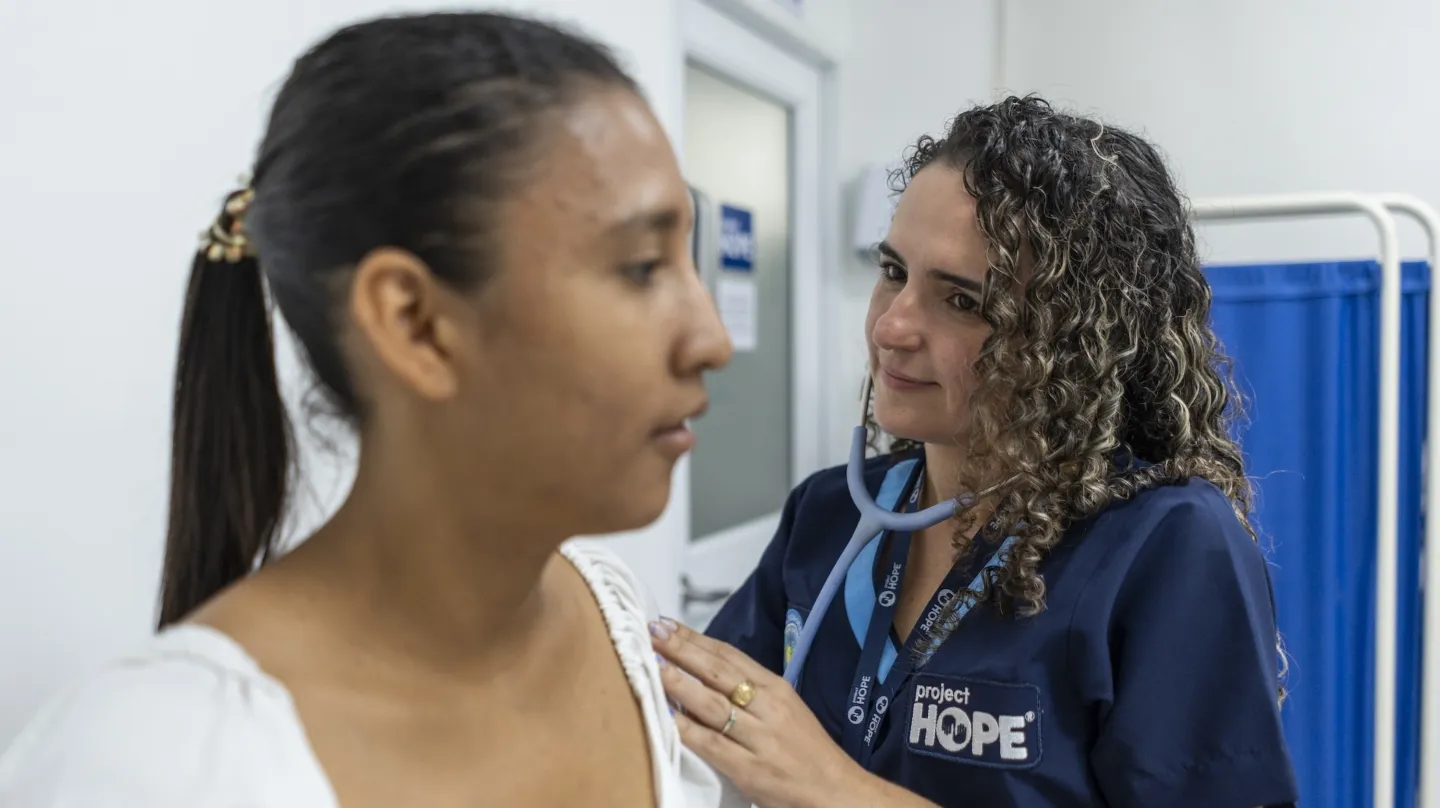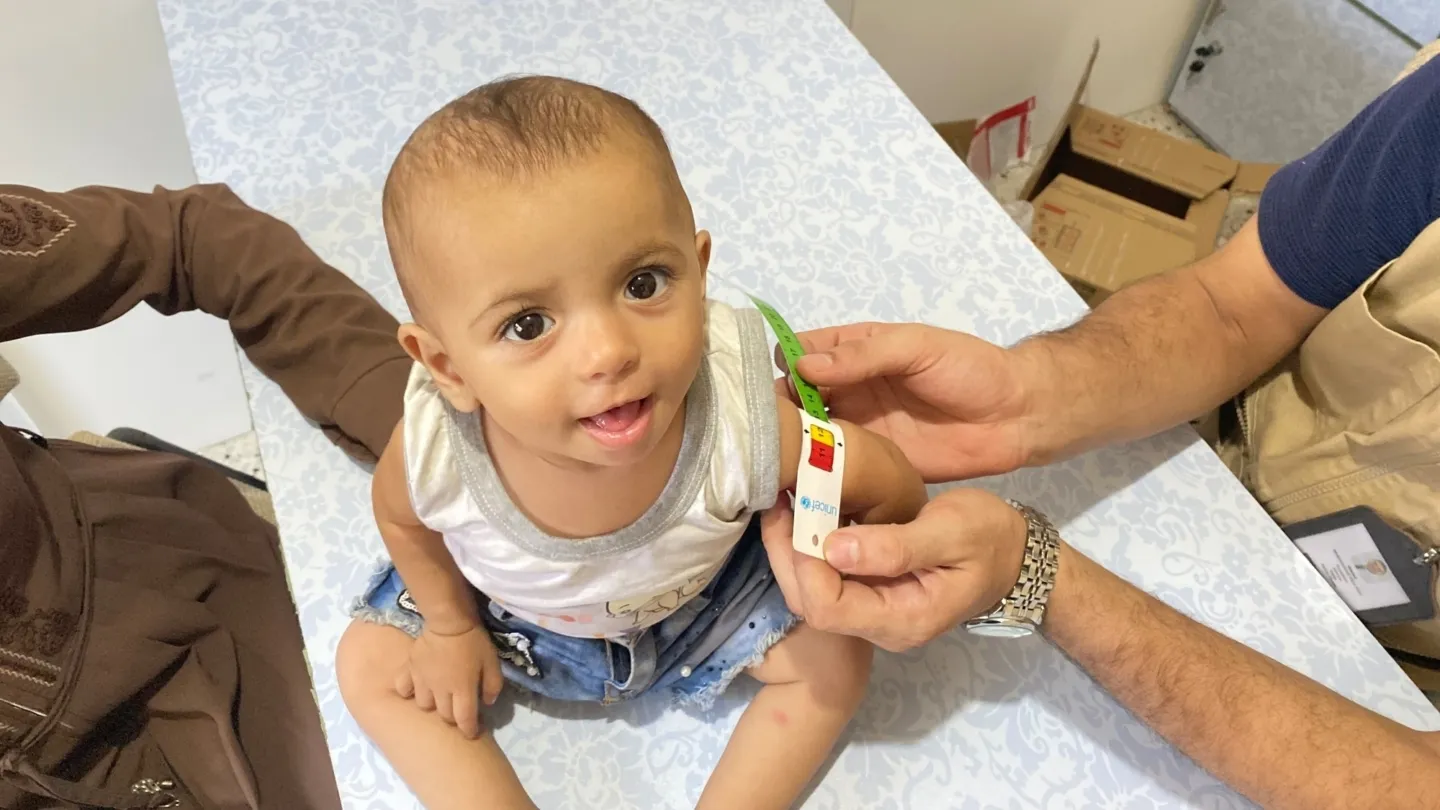‘The Sun Shone, Having No Alternative’: On the Ground in Ukraine
Read reflections from Project HOPE President and CEO Rabih Torbay from a recent visit to Ukraine.
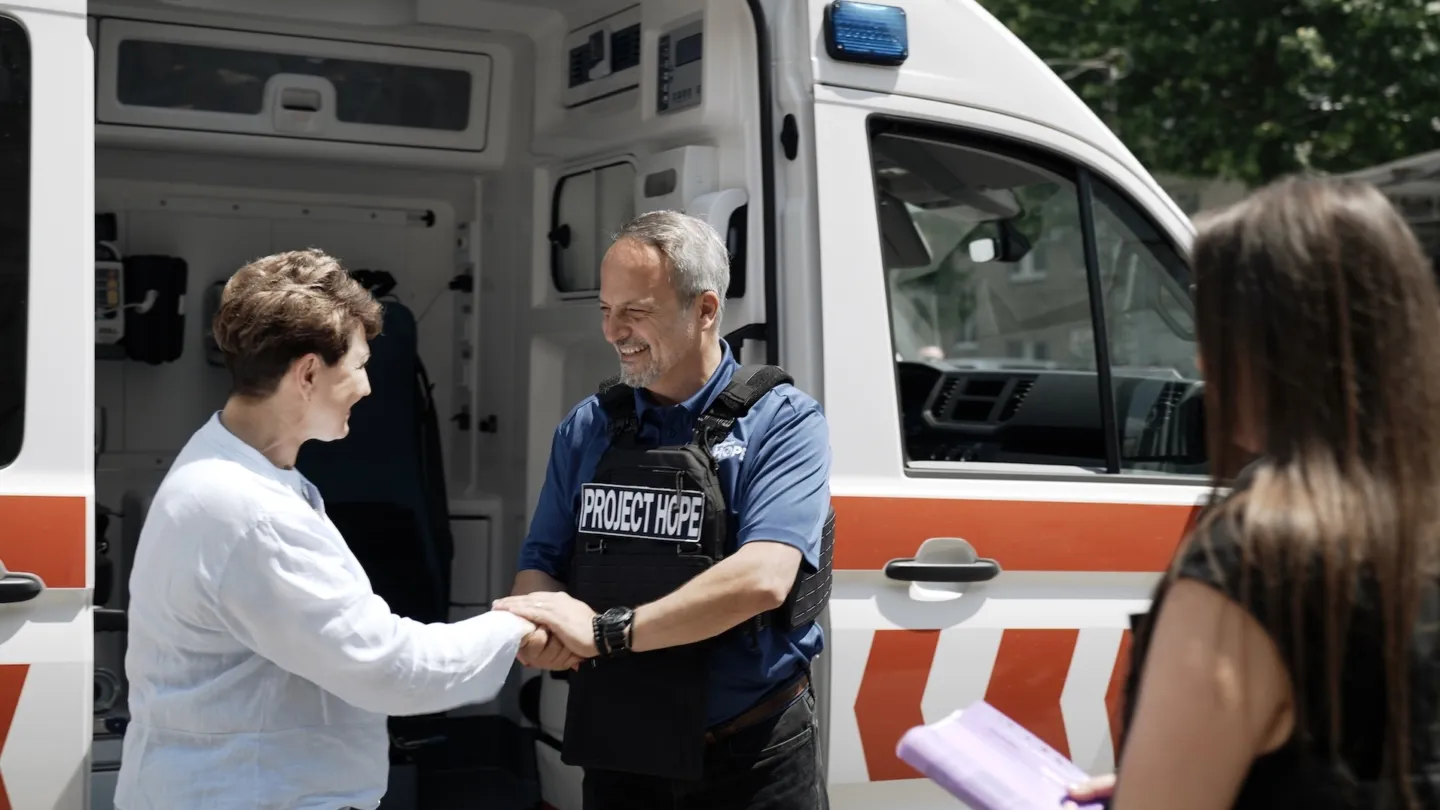
I’d been looking forward to returning to Ukraine. The last time I was here, Russia’s full-scale invasion had begun just six weeks prior. I remember arriving at the Poland-Ukraine border while thousands were trying to flee from the violence.
This time, the scene was different. As we drove towards Kyiv, the beauty of Ukraine came rushing back to me: rolling green hills, wide plains under bright blue skies, golden-domed churches, and shrines tucked into every corner.
On the surface, it looked “normal.” But here, normal is a relative term.
At night, the streets empty early as people brace for Russian air raids. My first night in Kyiv was “quiet” — again, a relative term. I woke up several times to sirens and hotel alerts urging guests to seek shelter.
The night that followed was different. Just after midnight, I was jolted awake by a loud explosion, followed by the thuds of air defense systems and more blasts. I later learned that 30 Ukrainians died that night, and over 170 were injured. One drone struck a residential building while people were sleeping.
When I checked my phone, I found messages from our Ukrainian colleagues asking if I was safe — amazing, given that they were at far greater risk.
At the office the next morning, I noticed a sign on the wall that read: “The sun shone, having no alternative.” A perfect description of life in Ukraine today.
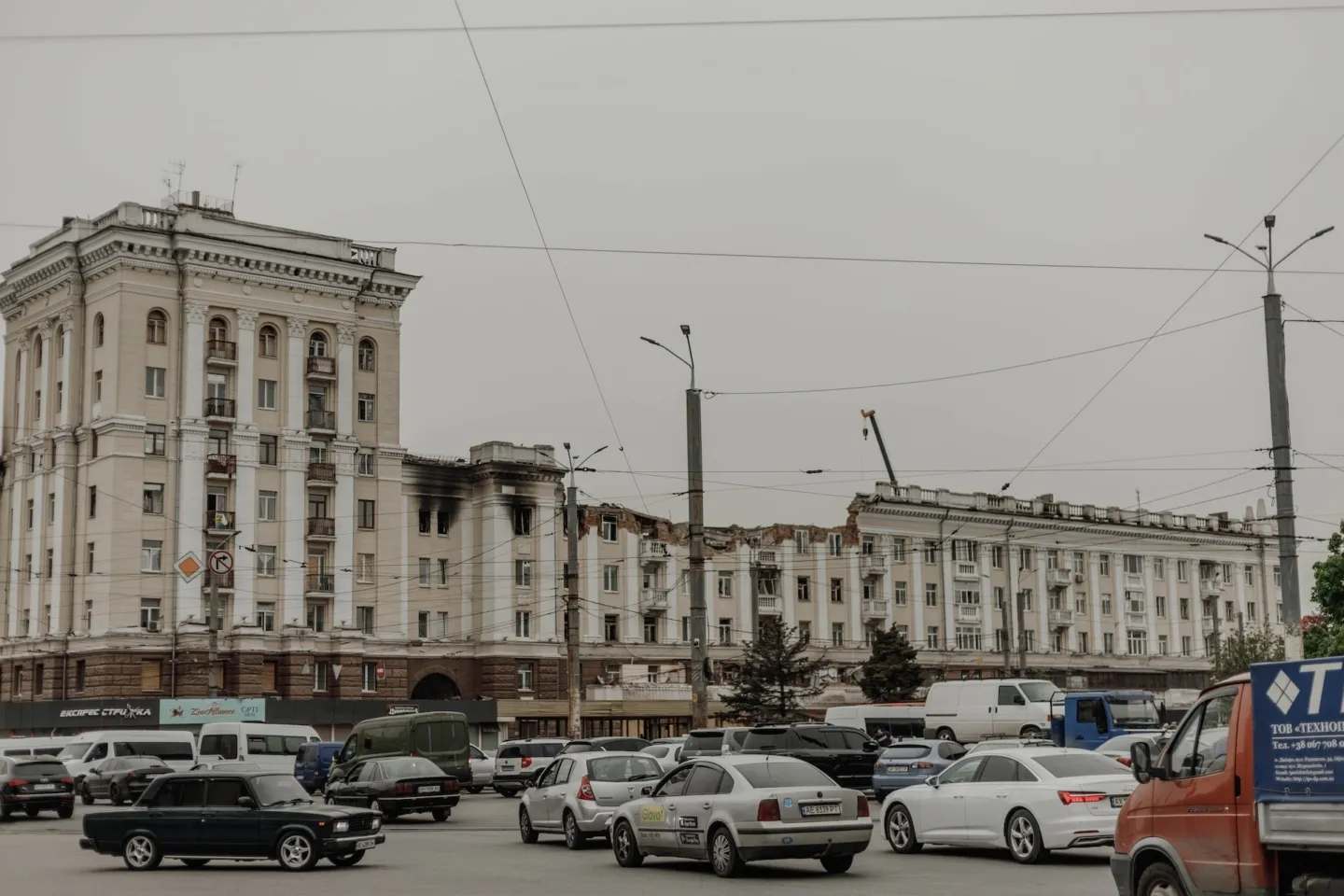
The mood improved as we drove outside the city to visit the Zahatlsi Ambulatory, a health clinic that we rebuilt after it was destroyed by Russian forces during the occupation of the region. The doctors and nurses were proud to be doing the work they were trained to do: providing care to those who need it most.
I met three remarkable women there: the team leader, the district supervisor, and a doctor who greeted me with a smile so full of light it cut through the heaviness from the night before. After talking, I learned that all three of them had been displaced from eastern Ukraine.
The doctor told me her son was taken by Russian forces, and she hasn’t seen him in over two years. She hopes every day that he’ll return in a prisoner swap. Still, she shows up to work every day with a smile, treating patients with compassion. It’s her way of serving others — just as her son is serving his country.
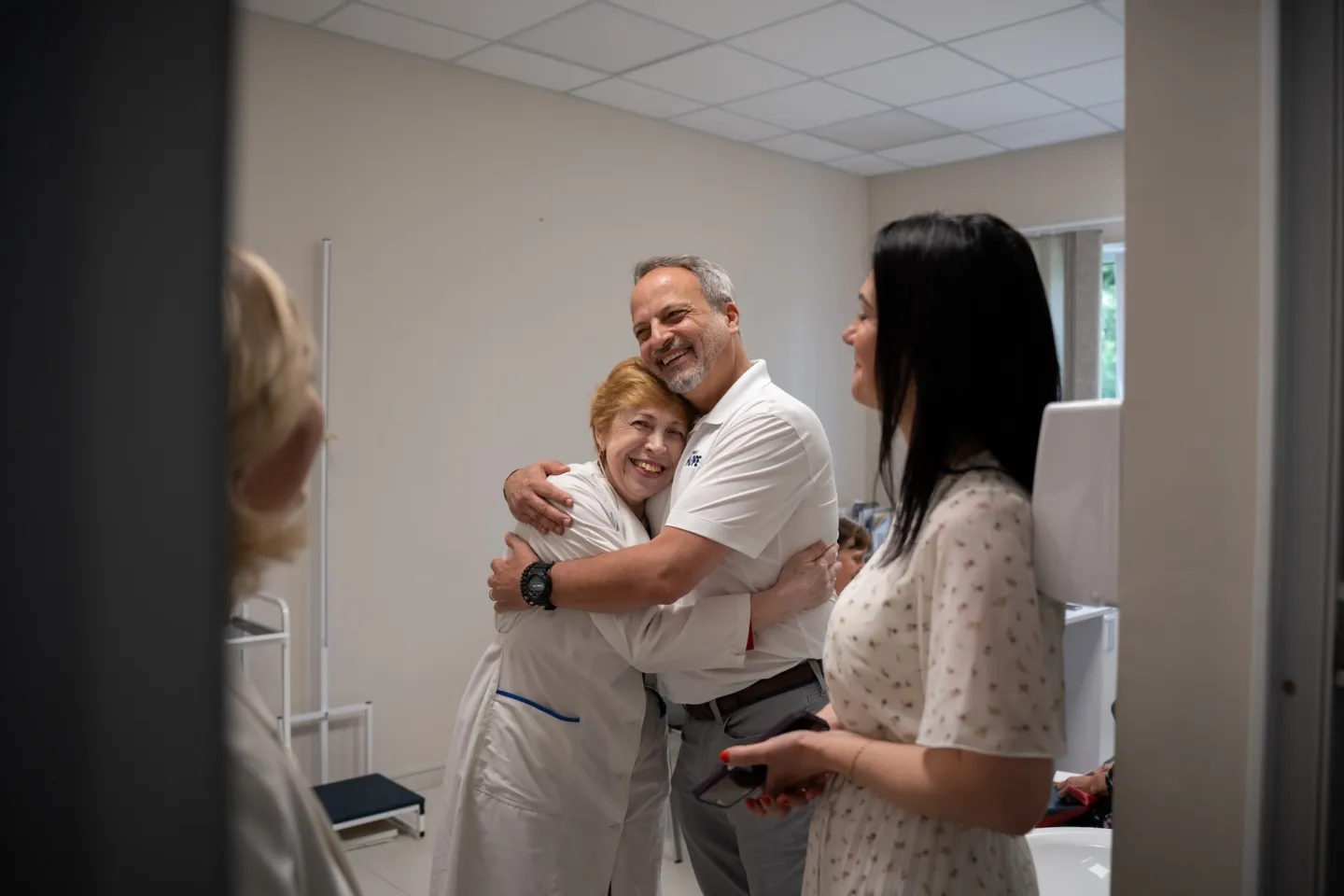
The district supervisor spoke to me through tears. She said the clinic not only brought critical health services to the community; it brought hope. It showed them that the world still cares, even when political support wavers and funding shrinks. Before I left, they gave me a handmade doll crafted by a family in Borodyanka. They told me it was blessed — and that it would protect me, my family, and our team.
From Zahaltsi, we continued to Borodyanka, where I saw what hope looks like in the form of a kindergarten we call “Pinocchio.” This town and its surrounding region of Bucha experienced a horrifying bombing campaign and civilian massacres in the early days of the war. That’s why it was so critical that Project HOPE helped rebuild the school after it was destroyed by a missile — to give children a place they could feel safe again.
Walking into the schoolyard and seeing kids laughing, running, and playing like children anywhere else in the world brought joy to all of us.
The school director gave us a tour, showing before-and-after photos, sharing with us that parents in Borodyanka want the same things every parent wants: peace, education, health, and food. The basics.
People often ask me, “Why is Project HOPE rebuilding a school when you’re a health organization?” The answer was written across the faces of those kids, their teachers, and every parent: rebuilding a school is a mental health intervention. It allows parents to return to work. It gives children a sense of safety. It restores a sense of normalcy for the entire community.
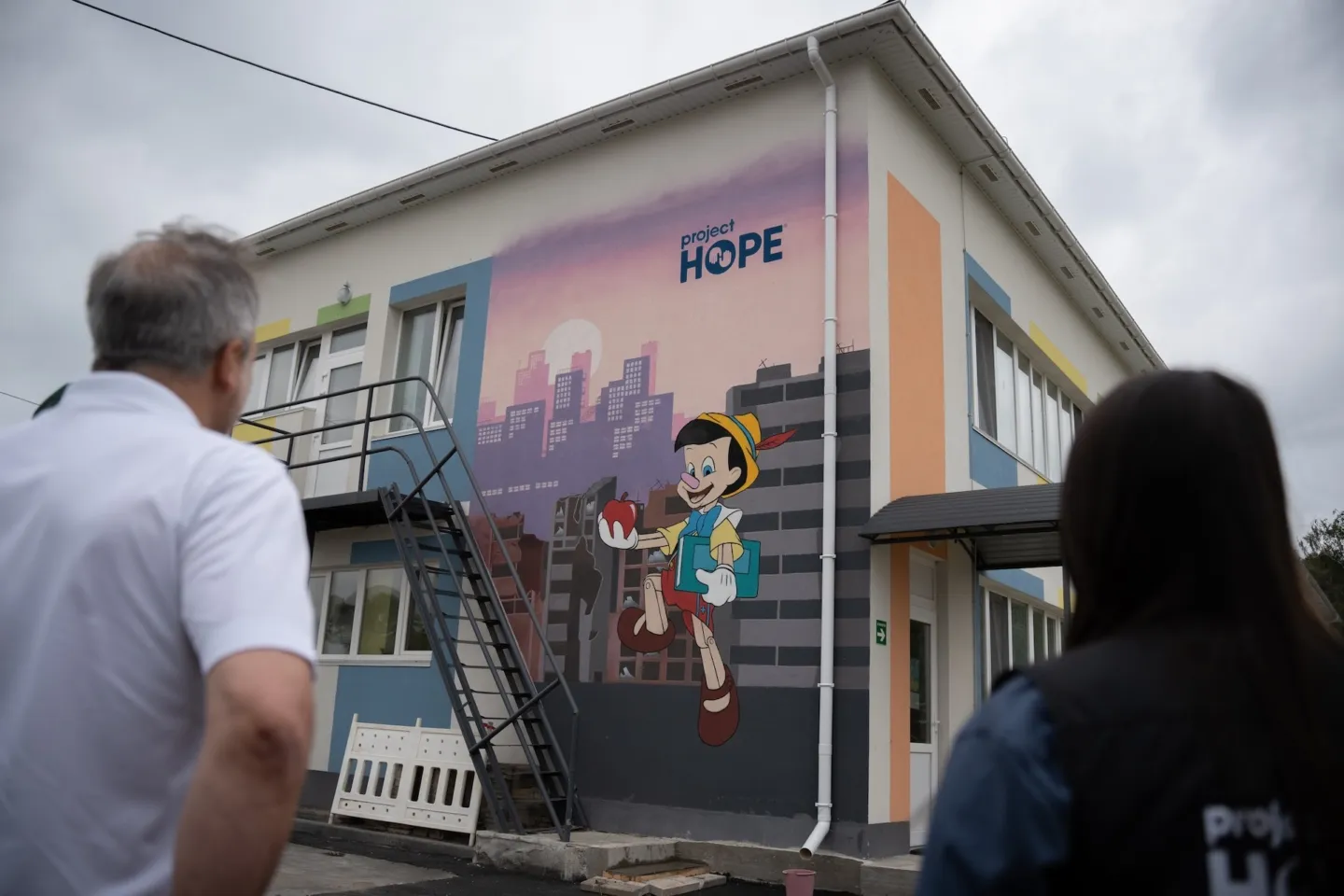
Our final visit of the day was to Hostomel — another town that endured unimaginable suffering under Russian occupation. We visited an empty plot of land where we had just received notice that we had funding to build a new ambulatory clinic. The clinic director immediately teared up, explaining how most of the population doesn’t have access to health care and this facility would be a lifeline.
Her excitement was evident, but behind her smile, there was profound sadness. When I asked her why she does this work, her story floored me. She had lost one son to the war. Her husband and her other son were taken as prisoners of war by Russian forces. Her son was released last year, but she still has no word about her husband.
She told us that her tears eventually ran dry and chose to channel her grief into service. Building this clinic, she said, gives her something to fight for. A renewed sense of purpose.
We left for Kherson at 8:00 the next morning. As we left the city behind, the devastation became impossible to ignore — village after village destroyed.
About 20 miles from Kherson, we switched from soft-skin vehicles and into armored Land Cruisers. We put on our body armor. From there, the mood shifted.
At a military checkpoint, our phones were taken. We were told Russia has been tracking — and sometimes targeting — individuals with foreign phone numbers, mistaking them for foreign fighters.
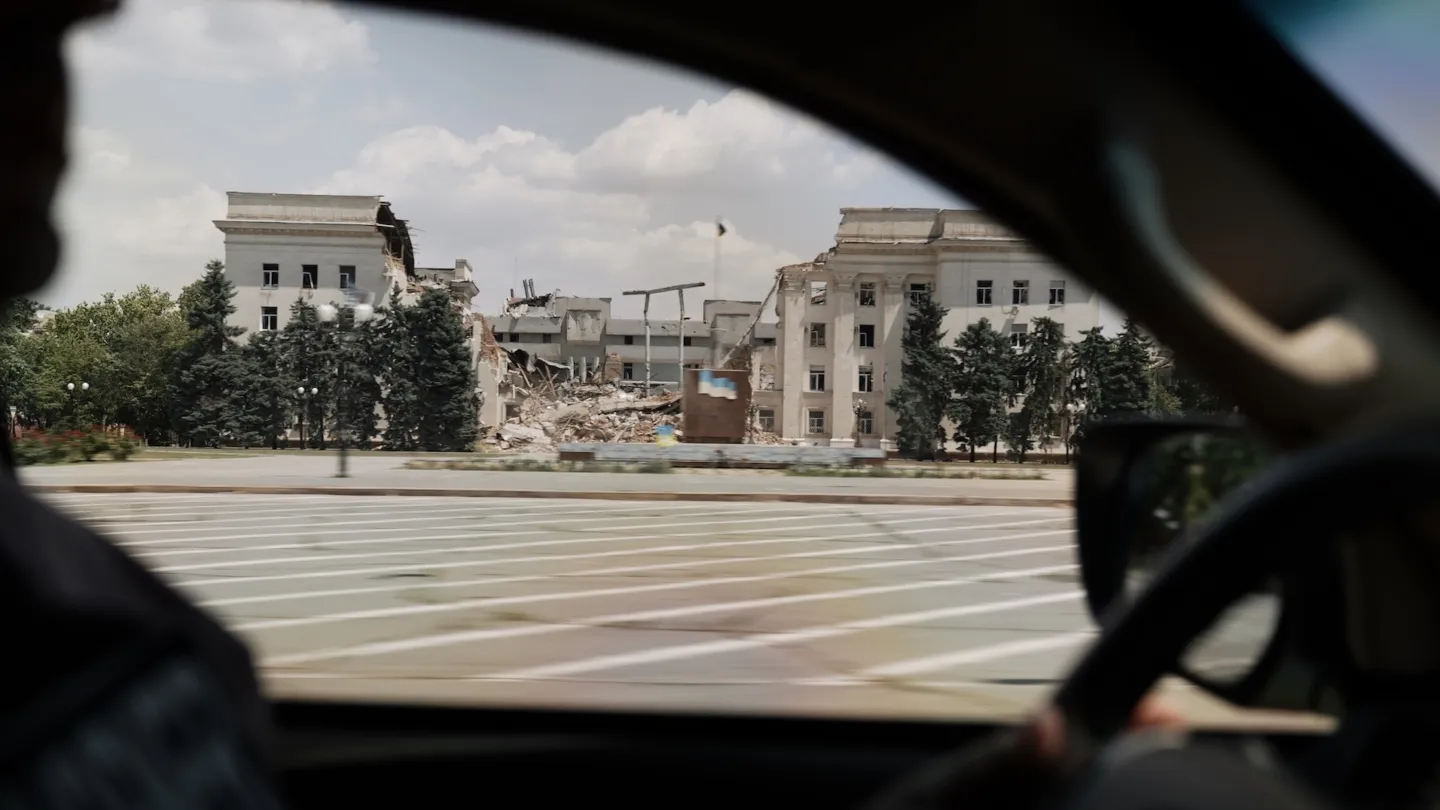
Once cleared, we headed straight to the Regional Center for Emergency Medical Care and Disaster Medicine — a hospital we support. The streets were eerily empty. Kherson has seen an uptick in civilian attacks. The silence was broken only by the occasional explosion in the distance. “It’s a quiet day,” they told us.
At the hospital, we were greeted by the director, her team, and the mayor of Kherson, and once again, I was struck by how much these brave professionals risk to care for others. They were the ones thanking us, when really, it should be the other way around.
The hospital director told us that without our support, many staff would’ve left long ago. But with the arrival of our surge team, medicines, hygiene kits, trauma training, and psychosocial support, they stayed. Because they stayed, lives were saved.
We then met the Head of the Kherson Regional Military Administration and the Emergency Medical Coordinator. We had just 10 minutes outside — no more for the fear of being targeted by Russian drones — to hand over a brand-new ambulance equipped with helmets and bulletproof vests. Because even saving lives here requires protection from shelling.
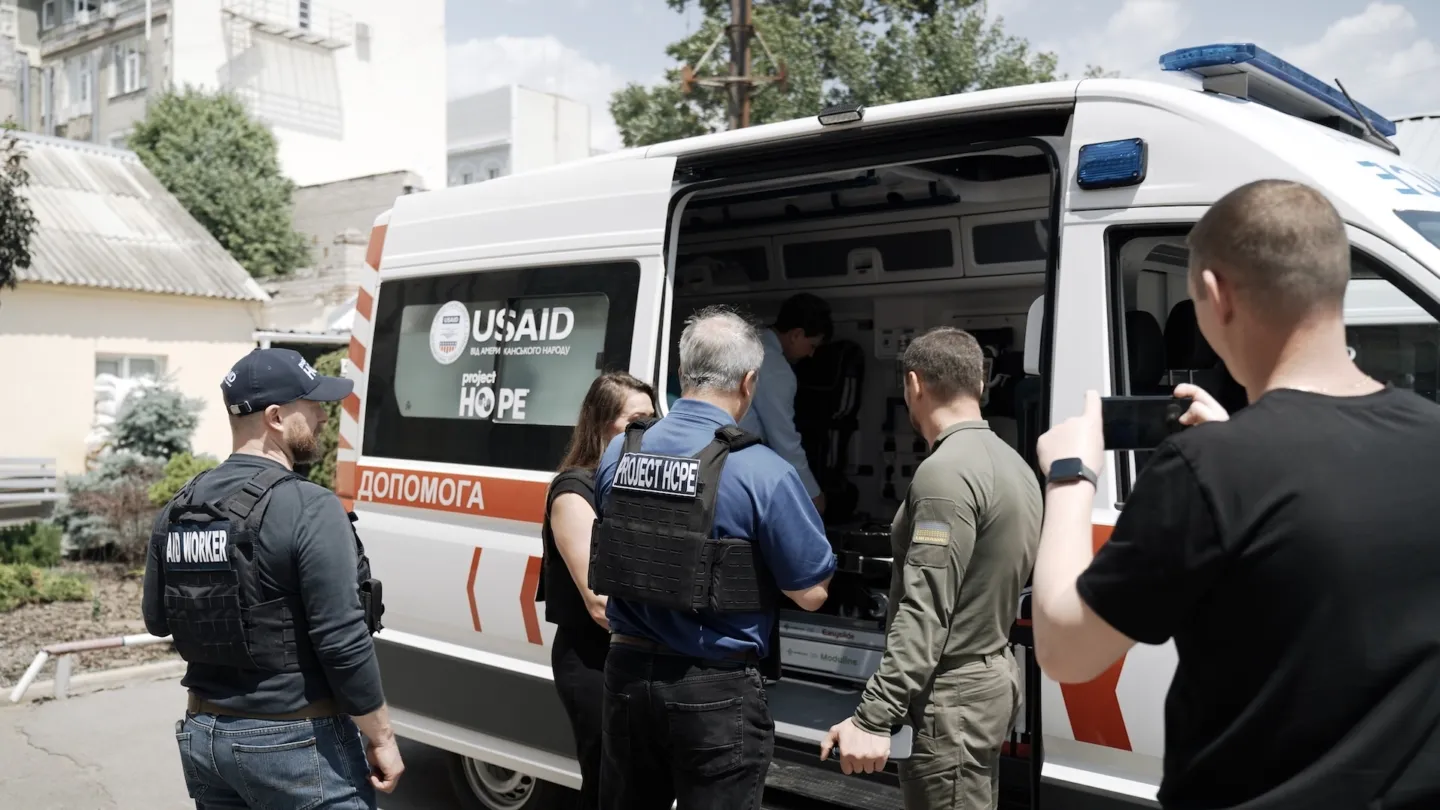
Explosions echoed as we moved underground for a final meeting. Local and regional leaders shared their urgent priorities: expanding emergency care, rehab, mental health support, infrastructure rebuilding, winterization, and mobile tuberculosis screening. These are all things we are committed to.
After a night of drone strikes in Odesa, my colleague Giorgio and I boarded a train to Lviv. A 79-year-old woman sat across from us.
Her name was Maria. She taught math for 51 years and served as a principal for 15. When we asked about her family, her face softened. She told us that her son and husband were both killed by Russian forces. Her daughter-in-law joined the military. Now, Maria is raising her two grandchildren alone.
“It’s my way of contributing to Ukraine’s victory,” she said quietly.
Every corner of Ukraine holds a story like Maria’s — full of heartbreak, but even more full of grace, courage, and unbreakable spirit. Her story, like so many in Ukraine, is one of immeasurable loss — and unshakable resilience. Everywhere you turn, tragedy and strength walk hand in hand.
Rabih Torbay is President and CEO of Project HOPE.

